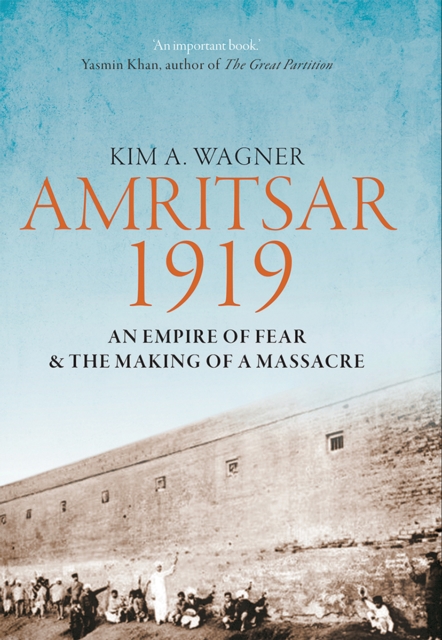
Amritsar 1919 : An Empire of Fear & the Making of a Massacre EPUB
by Kim A. Wagner
EPUB
Please note: eBooks can only be purchased with a UK issued credit card and all our eBooks (ePub and PDF) are DRM protected.
Description
"Chronicles the run up to Jallianwala Bagh with spellbinding . . . focus. . . . Mr. Wagner's achievement is one of balance . . . and, above, all, of perspective." (The Wall Street Journal)
The Amritsar Massacre of 1919 was a seminal moment in the history of the British Empire, yet it remains poorly understood. In this dramatic account, Kim A. Wagner details the perspectives of ordinary people and argues that General Dyer's order to open fire at Jallianwalla Bagh was an act of fear. Situating the massacre within the "deep" context of British colonial mentality and the local dynamics of Indian nationalism, Wagner provides a genuinely nuanced approach to the bloody history of the British Empire.
"Mr Wagner argues his case fluently and rigorously in this excellent book." -The Economist
"Written with a humane commitment to the truth that will impress." -The Times
"Skillfully maps a tale of growing tensions, precipitate action, and troubled aftermath." -The Telegraph
"A compelling account" -Financial Times
"Wagner's postmortem of an imperial disaster should be widely read." -R.A. Callahan, emeritus, Choice
"The fullest, and by far the most authoritative, account of the causes and course of the Jallianwala massacre in any language." -Nigel Collett, author of The Butcher of Amritsar
"Mining a variety of sources - diaries, memoirs and court testimonies-[Wagner] uncovers fresh perspectives and examines the relation between colonial panic and state brutality with sophistication, sincerity and style." -Santanu Das, author of India, Empire, and First World War Culture
"Analytically sharp but gripping to read, the book is a page-turner"-Barbara D. Metcalf, co-author of A Concise History of India
"An important book." -Yasmin Khan, author of The Partition
The Amritsar Massacre of 1919 was a seminal moment in the history of the British Empire, yet it remains poorly understood. In this dramatic account, Kim A. Wagner details the perspectives of ordinary people and argues that General Dyer's order to open fire at Jallianwalla Bagh was an act of fear. Situating the massacre within the "deep" context of British colonial mentality and the local dynamics of Indian nationalism, Wagner provides a genuinely nuanced approach to the bloody history of the British Empire.
"Mr Wagner argues his case fluently and rigorously in this excellent book." -The Economist
"Written with a humane commitment to the truth that will impress." -The Times
"Skillfully maps a tale of growing tensions, precipitate action, and troubled aftermath." -The Telegraph
"A compelling account" -Financial Times
"Wagner's postmortem of an imperial disaster should be widely read." -R.A. Callahan, emeritus, Choice
"The fullest, and by far the most authoritative, account of the causes and course of the Jallianwala massacre in any language." -Nigel Collett, author of The Butcher of Amritsar
"Mining a variety of sources - diaries, memoirs and court testimonies-[Wagner] uncovers fresh perspectives and examines the relation between colonial panic and state brutality with sophistication, sincerity and style." -Santanu Das, author of India, Empire, and First World War Culture
"Analytically sharp but gripping to read, the book is a page-turner"-Barbara D. Metcalf, co-author of A Concise History of India
"An important book." -Yasmin Khan, author of The Partition
Information
-
Download - Immediately Available
- Format:EPUB
- Publisher:Yale University Press
- Publication Date:26/03/2019
- Category:
- ISBN:9780300245462
Information
-
Download - Immediately Available
- Format:EPUB
- Publisher:Yale University Press
- Publication Date:26/03/2019
- Category:
- ISBN:9780300245462






